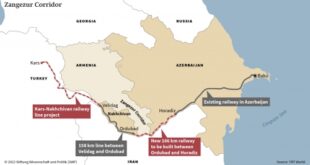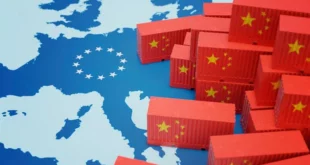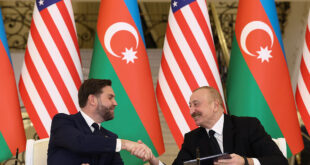BRUSSELS (Reuters) – The European Union was in disarray on Tuesday over Russia’s widely criticized parliamentary election after French President Nicolas Sarkozy telephoned President Vladimir Putin to congratulate him.
The French leader’s gesture put him at odds with close ally Germany, which flatly called the election “neither free, fair nor democratic” by Western standards, and with most other EU governments which voiced concern at reports of irregularities.
It also appeared to run counter to his own foreign ministry’s criticism of the conduct of the poll, echoing the objections of the few European observers allowed to monitor it.
“The president called Vladimir Putin to congratulate him,” Sarkozy’s spokesman David Martinon told reporters on Monday evening during an official visit to Algeria.
Diplomats said the EU’s Portuguese presidency was seeking agreement among the 27 member states on a joint statement but it was difficult to get consensus in national capitals on a text.
“Some people want one thing, others want another,” a Portuguese diplomat said in Lisbon.
Another diplomat said the draft circulated on Monday criticized Moscow’s treatment of the election monitoring office of the Organisation for Security and Cooperation in Europe (OSCE) and urged Russia to let in OSCE monitors to do a long-term survey in advance of a presidential election in March.
The differing European responses to the vote, in which Putin’s United Russia party won a landslide victory amid accusations that the opposition was muzzled and ballots rigged, highlighted the EU’s problems in speaking with a single voice towards Russia, its major energy supplier.
Since he took office in May, Sarkozy has adopted a more critical tone with Moscow on human rights than his predecessor, Jacques Chirac, who cultivated a special relationship with Putin partly to balance U.S. global power.
DISMAY
But the phone call to Putin at a time when all Western capitals were expressing varying degrees of dismay at Russia’s self-styled “managed democracy” caused embarrassment in Europe.
Asked whether European Commission President Jose Manuel Barroso planned to telephone the Russian leader and congratulate him, a Commission spokesman said: “I am not aware that there’s a phone call scheduled.”
The EU executive said on Monday it was working with member states on a joint EU response to the Russian poll.
Asked what had happened to the joint response, spokesman Johannes Laitenberger said: “I think that there is a common analysis between the member states of the EU on this matter and this common analysis is shared by the Commission.”
He declined to elaborate except to say: “Everybody is aware that observers have denounced a number of irregularities and … it is in the interest of Russian democracy, in the interest of a credible and strong Russia, to completely clarify all these allegations of irregularities.”
In a similar incident last week, the Portuguese presidency put out a critical statement three days after the arrest of opposition activists in Russia, including former world chess champion Garry Kasparov, only to withdraw it and issue a milder version without explanation.
 Eurasia Press & News
Eurasia Press & News



